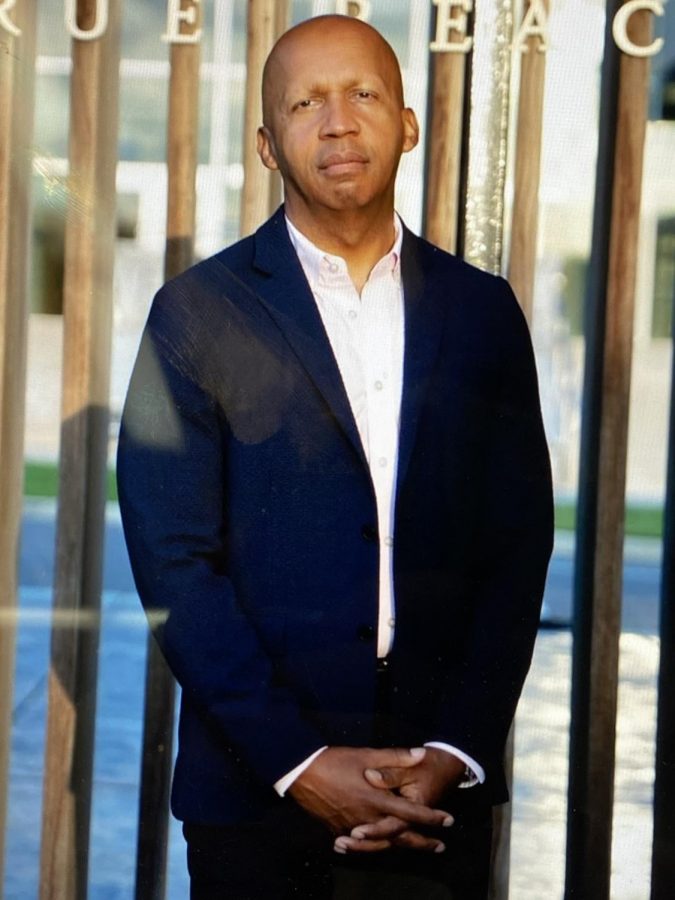Social justice icon speaks to Temple Emanu-El
Photo photo courtesy of instagram @teewestfield
Photo promotion for the March 22 event
On March 22, social justice icon and best-selling author of Just Mercy Bryan Stevenson spoke to Temple Emanu-El of Westfield and the greater Westfield community.
Stevenson has been an attorney since 1985 and has spent his career focused on eliminating the death penalty and life-without-parole sentencing. In 1994, Stevenson founded the Equal Justice Initiative, a non-profit law center in Montgomery, Alabama.
“We hope our community is inspired to find ways to act for a more just and fair criminal justice system and also delve deeper into racial justice issues in our community and our country. We see this event as a launching off program for additional programs,” said Temple Emanu-El Senior Rabbi Ethan Pronsit. Rabbi Prosnit added, “We hope to gather as different faith groups and community groups to discuss the program and commit to making changes in our own communities.”
After a brief introduction by Rabbi Prosnit and Reverend Angelo Wildgoose of St. Marks Episcopal Church in Plainfield, Stevenson began his presentation with a moving story about the racism he encountered on a family trip he took as a child.
Stevenson recalled the time white parents pulled their kids out of a pool that Stevenson and his sister were swimming in. Stevenson said that throughout the trip, he would think about those white kids in that pool, who, because of racism, were, “unable to swim, unable to jump, unable to laugh.”
Many audience members appreciated the detail Stevenson used throughout his anecdotes. WHS senior Jesse Weinstein noted, “Stevenson was an excellent speaker, who gave me a small glimpse into the hardships that those in the Black community face. It scared me half to death, but his words only further highlighted the strength that those in the Black community display every day.”
Stevenson also spoke in-depth about American history and its relationship to the modern-day hardships experienced by African Americans. He believes that America today is a “post-genocide society,” one that was created through the concept of racial differences that first applied to Native Americans, then later Black slaves brought to America through the North Atlantic slave trade.
In fact, Stevenson believes that “the real evil of American slavery was the narrative of racial difference that accompanied slavery.”
Stevenson’s presentation also focused on comparing his Christian faith to that of the Jewish tradition, speaking about how we can learn from our ancestors and use that to work towards a better future.
The event comes at a special time for both religions as next week is Christian Holy Week as well as the Jewish holiday of Passover. Prosnit said, “At Passover Seder, we tell the story of when we were slaves in Egypt but it is our mandate to also continue to discuss those who are still enslaved today and how we can fight for freedom for those individuals.”
This was inspiring for many listeners. Weinstein said, “He made me want to do better and be better. I want to understand the plights of others, and be an ally to all of those who have experienced hatred and oppression in our society.”
Stevenson’s words were both inspiring and informative giving those who were lucky enough to attend the event an incredibly powerful perspective on race in America. He also discussed the role we can all play in making a difference in eliminating the death penalty and those who are wrongfully incarcerated.
“Our narrative has made us vigilant against abuses of power and given us hope that from each period of oppression we can move to redemption and freedom,” said Prosnit.

